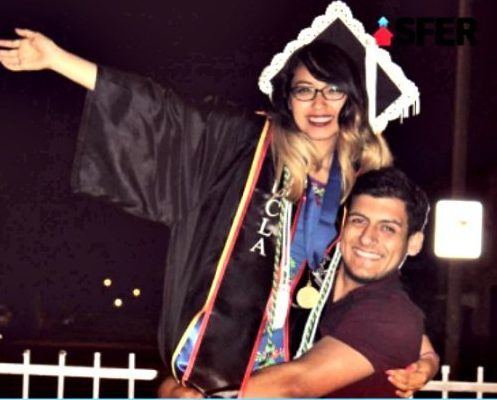I was recently asked if it is fair to expect school districts to provide low-income schools with “extra resources.” Is it the school’s responsibility to “fix” the inner city kids? Let me answer that by sharing a heart-warming holiday story with you.
I spent the last day of 2016 at a post-finals celebratory dinner with my boyfriend. After countless cups of coffee, all-nighters, and sheer persistence, we did it! We survived finals week! My boyfriend drove us back to his house. After a few minutes, he finally found a parking spot directly in front of his old elementary school.
Cshhhh!
Thump!
Ouch!
Was that hail?
Small pieces of something showered my leg, it shimmered against the moonlight.
It was glass! Shards of glass completely covered the front section of my car, the cold breeze came from where my window used to be. I saw a warm-brown colored rock on my feet.
A brick flew threw my window?!
Two men approached my car.
“Run it nigga, what you got? Run it.”
One of the men pointed a gun at us.
“Empty your pockets!”
One man reached into my boyfriend’s pocket.
“Okay, here take it, it’s yours”
My boyfriend surrendered his phone and wallet.
The gun moved.
“And you!?”
“N-n-nothing” I cried.
The man stared at me; I could feel him watching me closely, examining my voice carefully.
Fortunately, after that they quickly turned around and ran away into the night.
My boyfriend and I live in different parts of South Central Los Angeles. South Central is our home; it is our sanctuary away from white academia, and our motivation in every obstacle UCLA threw at us. Yes, we could have been robbed anywhere, but that’s the thing about systemic inequity; violence and crime occur persistently at higher rates in the hood than anywhere else.
In the last 6 months 571 violents crimes were reported in the Westside of LA; 6,804 violent crimes were reported in South LA (Los Angeles Times, December 2017). Why? Let’s take a deeper look, public schools in the Westside received an average API score of approximately 7/10 in school performance. Public schools in South LA received an average API score of approximately 3.7/10 in school performance (Los Angeles Times, 2017). The reality is that inner city students almost exclusively have access to failing schools. In my community, we know that access to education is the difference between having a career or going to jail. However, access to high-quality education reduces the likelihood of adolescent/adulthood crime rates with at-risk youth.
We were robbed that night, but I can never call the men who robbed us bad people. I can never call those men bad people because their local high school has a 14 percent math proficiency rate; their local high school is a dropout factory that never expected or supported these students in attending college. I in no way condone or pardon the violence; those men did a bad thing but they aren’t bad people. We can not continue to call education the great equalizer when we limit access to quality school away from low-income communities. LAUSD failed them and continues to fail inner cities students today. As children, my South Central peers aspired to become police officers, doctors, lawyers, and teachers. As adults, my South Central peers are in the justice system because the quality of education they received severely limited their employments options, and made it almost impossible to support their families.
Let me make this clear, we aren’t asking for a hand out; we’re asking for a level playing field.
No, I don’t think it is too much to ask for school districts to provide equitable resources to schools who–at baseline–don’t provide their students the same privileges students in affluent communities receive. We didn’t ask to be born in South Central the same way students in Beverly Hills didn’t ask to be born in affluence. That’s the thing about privilege, its arbitrary. South Central has been left behind and given bandage solutions for generations, enough is enough. Access to quality education is a right, not a privilege. Inner cities are worthy of the same quality education affluent cities receive. Our students are more than ready to receive a high quality education; in fact, their already waiting for it.
Desiree Martinez
Latest posts by Desiree Martinez (see all)
- Broken Student Loan System Gets An Overhaul - June 6, 2022
- Cellblock Scholars: The First College Behind Bars - May 25, 2022
- Sin Preparación en la Universidad; Puntajes bajos debido a la Pandemia - April 27, 2022
- Unprepared in College; Sinking Scores Due to Pandemic - April 21, 2022
- Los Estudiantes No Se Inscriben en la Escuela Para Hacer una Declaración Política, Ellos Van a Aprender - October 29, 2018


Monica
this is such an amazing article. i can relate because my entire life I have lived in the city of Compton. we share similarities in school statistics